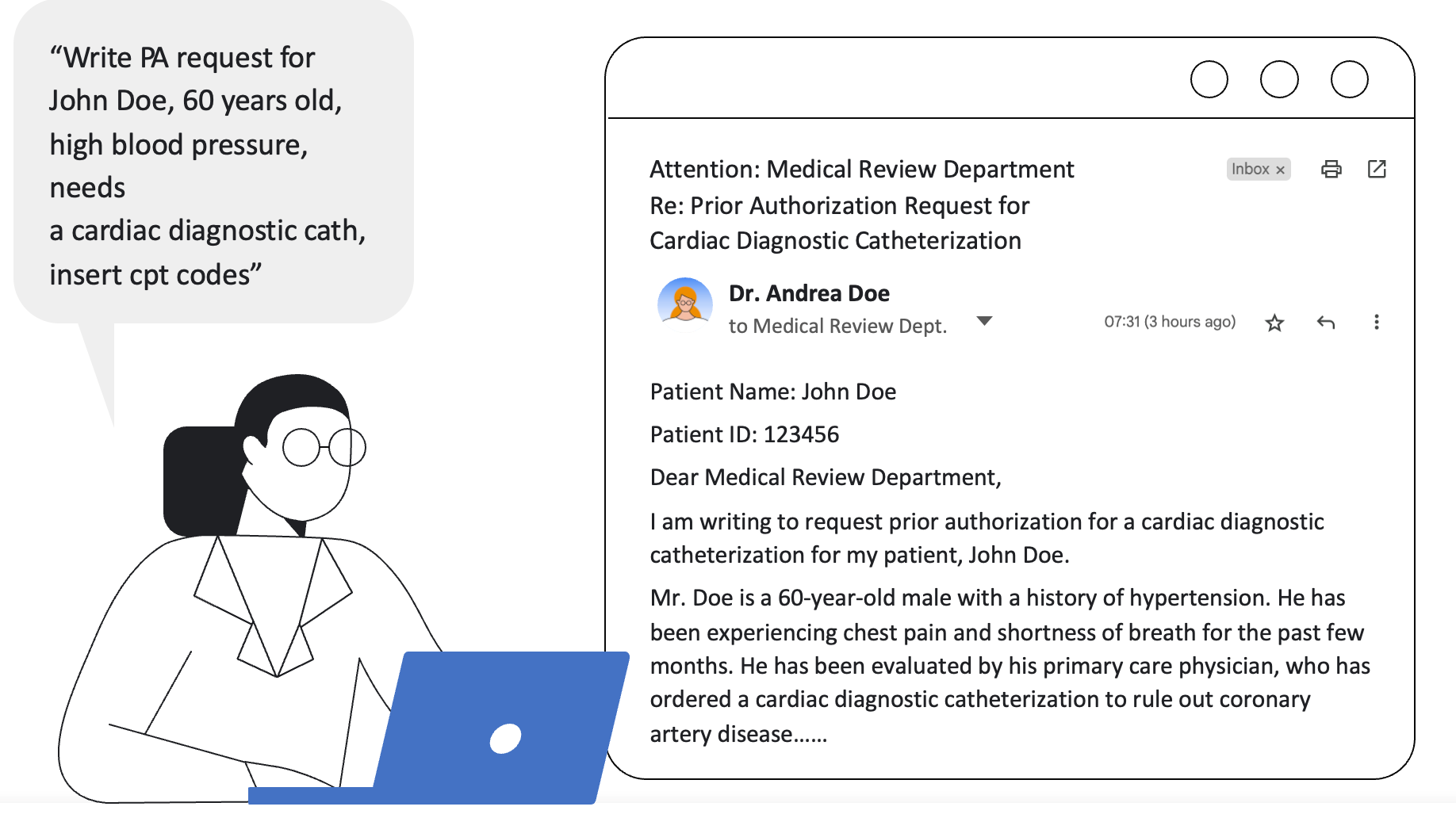AI in Healthcare: A Case Study of Improving the Prior Authorization Process
Oct 11,2023
Large Enterprise Healthcare Institution
Scope
The primary goal of this project was to implement technological solutions to improve a required process in the healthcare industry. Healthcare outcomes are frequently determined by a complex set of interactions between patients, clinicians, and payers. The responsible and judicious use of technology reduces friction between system components and leads to better experiences for all stakeholders.
Introduction
Prior Authorization (PA) is the process by which a clinician seeks authorization from the payer for treatment/therapy on behalf of the patient. The process is quite burdensome and opaque for the clinician, and can introduce uncertainty into the decision-making process, potentially delaying treatment.
Challenges
Previously, clinicians not only spent excessive time filling out documentation related to PA, but also lacked visibility into the decision-making process that the payer uses to approve or deny PA requests.
Technology Solutions
Intuitive addressed the challenge by first engaging with clients and clinicians to thoroughly understand the process and address the issue comprehensively. We took several approaches to achieve this goal. Holding ideation sessions with clinicians helped us to fully understand the PA business process. Mapping the various interactions between systems, documents, and data allowed us to create a comprehensive digital landscape that integrated data, process, and technology. We also automated the creation of PAs by pulling data from EHR systems and generating PA requests, while maintaining a human-in-the loop design system. We built machine learning models using supervised learning that could understand the patterns of payer behavior and provide clinicians with a probability of approval before a request was made. Using explainability capabilities elucidated the reasoning behind the model’s prediction. Finally, we employed large language models to simplify explainability so that it could be easily understood by medical staff.

Implementation Strategy
Due to the fact that this implementation occurred in the healthcare sector, Intuitive chose to take a conservative approach in implementing Generative AI and related technologies. A critical element in the approach was to maintain a human-in-the-loop design system to ensure that the quality of patient care was not negatively impacted. Additionally, we spent considerable time framing the problem to verify that it was understood from the perspective of many different personas, each of whom had their own success criteria.
From a technology perspective, we made heavy use of Cloud services such as Vertex AI, Generative AI Studio, and Dialogflow CX to build these capabilities and make them accessible to users through natural language.
Results and Impact
Implementation of these capabilities resulted in 30% less work in terms of filling out PA requests. Furthermore, it improved the decision-making process by giving clinicians the ability to predict payer behavior and determine the appropriate course of action to take.

Lessons Learned
The most important lesson learned in this case study was the value of understanding the needs of each stakeholder throughout the Prior Authorization process. By integrating their knowledge and perspectives, and by making them a part of the process, we were able to design the simplest system possible that met the needs of the customer.
Conclusion
Generative AI can improve patient outcomes and reduce the burden on clinicians. Implementing this technology responsibly and judiciously is key to fulfilling the promise of Generative AI in healthcare provider environments.
References
https://cloud.google.com/vertex-ai/docs/generative-ai/learn/overview
https://cloud.google.com/vertex-ai/docs/generative-ai/learn/generative-ai-studio?_ga=2.10011580.-840030818.1674258022
https://cloud.google.com/dialogflow/cx/docs




